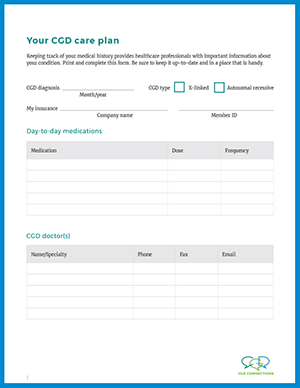ACTIMMUNE is also used to slow the worsening of severe, malignant osteopetrosis (SMO). SMO is a genetic disorder that affects normal bone formation and is usually diagnosed in the first few months after birth.
When should I not take ACTIMMUNE?
Don't use ACTIMMUNE if you are allergic to interferon-gamma, E. coli derived products, or any ingredients contained in the product.
What warnings should I know about ACTIMMUNE?
At high doses, ACTIMMUNE can cause (flu-like) symptoms, which may worsen some pre-existing heart conditions.
ACTIMMUNE may cause decreased mental status, walking disturbances, and dizziness, particularly at very high doses. These symptoms are usually reversible within a few days upon dose reduction or discontinuation of therapy.
Bone marrow function may be suppressed with ACTIMMUNE, and decreased production of cells important to the body may occur. This effect, which can be severe, is usually reversible when the drug is discontinued or the dose is reduced.
Taking ACTIMMUNE may cause reversible changes to your liver function, particularly in patients less than 1 year old. Your doctor should monitor your liver function every 3 months, and monthly in children under 1 year.
In rare cases, ACTIMMUNE can cause severe allergic reactions and/or rash. If you experience a serious reaction to ACTIMMUNE, discontinue it immediately and contact your doctor or seek medical help.
What should I tell my healthcare provider?
Be sure to tell your doctor about all the medications you are taking.
Tell your doctor if you:
- are pregnant or plan to become pregnant or plan to nurse
- have a cardiac condition such as irregular heartbeat, heart failure, or decreased blood flow to your heart
- have a history of seizures or other neurologic disorders
- have, or have had, reduced bone marrow function. Your doctor will monitor these cells with blood tests at the beginning of therapy and at 3-month intervals on ACTIMMUNE therapy
What are the side effects of ACTIMMUNE?
The most common side effects with ACTIMMUNE are "flu-like" symptoms such as fever, headache, chills, muscle pain, or fatigue, which may decrease in severity as treatment continues. Bedtime administration of ACTIMMUNE may help reduce some of these symptoms. Acetaminophen may be helpful in preventing fever and headache.
What other medications might interact with ACTIMMUNE?
Some drugs may interact with ACTIMMUNE to potentially increase the risk of damage to your heart or nervous system, such as certain chemotherapy drugs. Tell your doctor about all other medications you are taking.
Avoid taking ACTIMMUNE at the same time as a vaccination.
You are encouraged to report negative side effects of prescription drugs to the FDA. Visit www.fda.gov/medwatch, or call 1-800-FDA-1088.
The risk information provided here is not comprehensive. To learn more, talk about ACTIMMUNE with your healthcare provider or pharmacist. The FDA-approved product labeling can be found at http://www.ACTIMMUNE.com or 1-866-479-6742.





